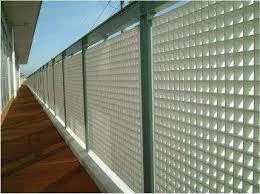
-
 Afrikaans
Afrikaans -
 Albanian
Albanian -
 Amharic
Amharic -
 Arabic
Arabic -
 Armenian
Armenian -
 Azerbaijani
Azerbaijani -
 Basque
Basque -
 Belarusian
Belarusian -
 Bengali
Bengali -
 Bosnian
Bosnian -
 Bulgarian
Bulgarian -
 Catalan
Catalan -
 Cebuano
Cebuano -
 China
China -
 China (Taiwan)
China (Taiwan) -
 Corsican
Corsican -
 Croatian
Croatian -
 Czech
Czech -
 Danish
Danish -
 Dutch
Dutch -
 English
English -
 Esperanto
Esperanto -
 Estonian
Estonian -
 Finnish
Finnish -
 French
French -
 Frisian
Frisian -
 Galician
Galician -
 Georgian
Georgian -
 German
German -
 Greek
Greek -
 Gujarati
Gujarati -
 Haitian Creole
Haitian Creole -
 hausa
hausa -
 hawaiian
hawaiian -
 Hebrew
Hebrew -
 Hindi
Hindi -
 Miao
Miao -
 Hungarian
Hungarian -
 Icelandic
Icelandic -
 igbo
igbo -
 Indonesian
Indonesian -
 irish
irish -
 Italian
Italian -
 Japanese
Japanese -
 Javanese
Javanese -
 Kannada
Kannada -
 kazakh
kazakh -
 Khmer
Khmer -
 Rwandese
Rwandese -
 Korean
Korean -
 Kurdish
Kurdish -
 Kyrgyz
Kyrgyz -
 Lao
Lao -
 Latin
Latin -
 Latvian
Latvian -
 Lithuanian
Lithuanian -
 Luxembourgish
Luxembourgish -
 Macedonian
Macedonian -
 Malgashi
Malgashi -
 Malay
Malay -
 Malayalam
Malayalam -
 Maltese
Maltese -
 Maori
Maori -
 Marathi
Marathi -
 Mongolian
Mongolian -
 Myanmar
Myanmar -
 Nepali
Nepali -
 Norwegian
Norwegian -
 Norwegian
Norwegian -
 Occitan
Occitan -
 Pashto
Pashto -
 Persian
Persian -
 Polish
Polish -
 Portuguese
Portuguese -
 Punjabi
Punjabi -
 Romanian
Romanian -
 Russian
Russian -
 Samoan
Samoan -
 Scottish Gaelic
Scottish Gaelic -
 Serbian
Serbian -
 Sesotho
Sesotho -
 Shona
Shona -
 Sindhi
Sindhi -
 Sinhala
Sinhala -
 Slovak
Slovak -
 Slovenian
Slovenian -
 Somali
Somali -
 Spanish
Spanish -
 Sundanese
Sundanese -
 Swahili
Swahili -
 Swedish
Swedish -
 Tagalog
Tagalog -
 Tajik
Tajik -
 Tamil
Tamil -
 Tatar
Tatar -
 Telugu
Telugu -
 Thai
Thai -
 Turkish
Turkish -
 Turkmen
Turkmen -
 Ukrainian
Ukrainian -
 Urdu
Urdu -
 Uighur
Uighur -
 Uzbek
Uzbek -
 Vietnamese
Vietnamese -
 Welsh
Welsh -
 Bantu
Bantu -
 Yiddish
Yiddish -
 Yoruba
Yoruba -
 Zulu
Zulu
Exploring the Benefits and Characteristics of Fiberglass Food Grade Equipment
Fiberglass Food Grade Equipment A Closer Look at Its Features and Benefits
In the ever-evolving food industry, the demand for high-quality, durable, and safe equipment is paramount. Fiberglass food grade equipment has gained significant traction due to its remarkable properties and advantages over traditional materials. This article delves into the features and benefits of fiberglass food grade equipment, providing insights into why it’s becoming a favored choice among food manufacturers and processors.
Understanding Fiberglass in Food Grade Applications
Fiberglass, composed of fine glass fibers, is renowned for its lightweight yet sturdy nature. When it comes to food-grade applications, fiberglass is often reinforced with resin that meets stringent health and safety standards, ensuring that it is safe for use with food products. The non-porous nature of fiberglass prevents the absorption of liquids and contaminants, making it an ideal material for equipment that comes into direct contact with food.
Key Features of Fiberglass Food Grade Equipment
1. Durability and Longevity One of the standout features of fiberglass equipment is its exceptional durability. It can withstand harsh conditions, including exposure to chemicals, extreme temperatures, and mechanical stress. This resilience translates to a longer lifespan for the equipment, reducing the need for frequent replacements and repairs.
2. Non-Corrosive Properties Unlike metal equipment that may corrode or rust when exposed to moisture and various food substances, fiberglass remains unaffected. This non-corrosive characteristic not only enhances the longevity of the equipment but also ensures the safety and quality of food products processed using fiberglass.
3. Ease of Maintenance Fiberglass food grade equipment is easy to clean and maintain. The smooth surface minimizes the accumulation of bacteria and food particles, which can be a significant concern in food processing environments. Regular cleaning interventions become more straightforward, facilitating compliance with health regulations and safety standards.
fiberglass food grade equipment a closer look at its features and ...

4. Lightweight Construction The lightweight nature of fiberglass makes it easier to handle and transport. Workers can maneuver the equipment without the same level of physical strain that heavier materials would impose, contributing to a safer and more efficient working environment.
5. Versatility in Design Fiberglass can be molded into various shapes and designs, allowing manufacturers to create custom solutions tailored to specific needs. Whether it’s tanks, containers, or specialized processing equipment, fiberglass can be engineered to meet a wide range of applications in the food industry.
Benefits for the Food Industry
The benefits of using fiberglass food grade equipment extend beyond the features mentioned above. By opting for this material, food manufacturers can improve their operational efficiency and reduce long-term costs. The durability and resistance to wear and tear help minimize downtime associated with repairs and replacements. Furthermore, the ease of cleaning aids in maintaining high hygiene standards, crucial in today’s food safety-conscious market.
Additionally, the ability to create custom solutions opens up new possibilities for food processing and storage. Companies can innovate and adapt their equipment to better serve their products and improve overall workflow.
Conclusion
In conclusion, fiberglass food grade equipment represents a modern and effective solution for the food industry. With its exceptional durability, non-corrosive properties, ease of maintenance, and lightweight design, it addresses many of the challenges faced by food processors today. As the industry continues to prioritize safety, efficiency, and innovation, fiberglass equipment is likely to play an increasingly pivotal role in shaping the future of food manufacturing and processing. By understanding its features and benefits, stakeholders can make informed decisions that enhance their operations and ensure product quality.
Latest news
-
Exploring the Benefits of Top Hammer Drifter Rods for Enhanced Drilling PerformanceNewsJun.10,2025
-
High-Precision Fiberglass Winding Machine for GRP/FRP Pipe Production – Reliable & Efficient SolutionsNewsJun.10,2025
-
FRP Pipes & Fittings for Shipbuilding - Corrosion-Resistant & LightweightNewsJun.09,2025
-
Premium FRP Flooring Solutions Durable & Slip-ResistantNewsJun.09,2025
-
Premium Fiberglass Rectangular Tanks Durable & Lightweight SolutionNewsJun.09,2025
-
Tapered Drill String Design Guide Durable Performance & UsesNewsJun.09,2025









